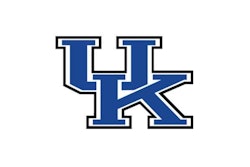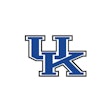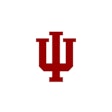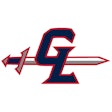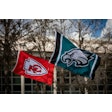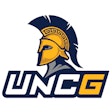Copyright 2017 Gannett Company, Inc.
All Rights Reserved
USA TODAY
There is an NFL player strolling through the Anaheim Convention Center, but no one pays him much mind. Rodger Saffold of the Los Angeles Rams is a warm and friendly character, too, but he has walked into a place where the traditional definition of sports celebrity has performed an about turn.
On a sweltering recent Friday in Southern California, the performers being begged for autographs by teenagers are teenagers themselves while Saffold stands smiling, contentedly unbothered. The chants and cheers that will soon rise up are for teams the average sports fan has never heard of. And the action to be beamed across the Internet and airwaves to screens back home is taking place here, also on screens.
This is the CWL Anaheim Open, latest stop in Major League Gaming's Call of Duty World League tour. It is one of the premier events in eSports, and maybe a glimpse at part of the future of visual entertainment. It is a real-life offshoot of a massive social movement that takes place almost exclusively online, in the world of competitive video gaming.
Call of Duty, known in gaming parlance as a first-person shooter, is played by millions worldwide. In its competitive form, CoD teams try to take down the opposition over a series of battles.
From AB: Leveraging the Esports Popularity Boom
"It is exploding right now," Saffold tells USA TODAY Sports, and supporters line up for signing sessions with elite players at their sponsorship booths before the action starts. "If you are going to call eSports sports, then these guys are athletes. I can't put it simpler than that. And the sky is the limit."
Saffold, entering his eighth NFL season, did not get lost on the way to Disneyland across the street. He's here because, having played video games for years, he became more deeply involved in 2014, buying his own professional team, Rise Nation.
He and business partner Kahreem Horsley are essentially the general managers for their franchise, which participates not only in Call of Duty events but also other games such as Outbreak and Street Fighter.
They are keeping the budget in check and trying to build a tightknit unit that will grow together, but many team salaries can climb into the hundreds of thousands of dollars as competition to land the best talent heats up.
In Anaheim, hundreds of amateur teams are preparing to square off for the right to compete against the pros, but apart from a few exceptions, most will stand no chance. The pros are the equivalent of an NBA team.
"I devote probably three-quarters of every day to it," Sam "Octane" Larew, a 19-year-old Virginian who might be at community college studying political science if a baseball injury hadn't caused him to ditch the diamond and spend more time on video games. "It is my job."
Larew took valuable lessons from his time playing baseball and basketball and incorporated them into his search for video game greatness. Similarly, Major League Gaming (MLG) borrows unabashedly from typical sports in its structure. The organization has a red and blue logo just like the NBA, with a console instead of a silhouetted Jerry West separating the colors.
Some pretty decent money is involved, too. The Anaheim Open offered $200,000 in prize funds. The Call of Duty World League championship in Orlando in August has $1.5million at stake.
So how do you become good enough to make that kind of money?
"A lot more of it is willpower than people think," Larew says. "Obviously, skill comes into the picture, but it is a lot more than your ability to play the game. (There are) similarities with sports -- the physical thing isn't there, but in terms of the team aspect, drive to improve, never being satisfied, that is all there."
As the seats in front of the main stage fill, more than 100 amateur teams take their places behind them and the noise grows. The audience is young, and most are clad in brightly colored team jerseys with their name and player handle on the back. They are almost exclusively male.
Victoria Gentry, 20, an insurance agent from Columbus, Ga., and Kristen Zinzi, 19, a student from New York, are two of the female contingent. "There aren't too many girls, that's for sure," says Zinzi, who's known online as "Vendetta."
In the moments before the event is streamed online, Chris Puckett is doing his thing, too, getting ready for his latest on-camera stint. Puckett is the on-air talent for MLG and has been with the company since soon after its inception in 2002, having long ago been persuaded by the ownership group to give up a marketing degree and bring his gaming expertise to the audience.
As the industry has evolved, so, too, has Puckett. Rather than focusing too intricately on the play-by-play and possibly alienating an uninitiated observer, he prefers to delve into the emotion of the games, the back stories of the players, much like in real sports. He watches college football analyst Kirk Herbstreit, UFC caller Joe Rogan and assorted hockey commentators in search of new ways to appeal.
"Now a lot more people are able to come in and attach themselves to a player, become a fan of a new team, even if they haven't seen that level before or tried to play with that weapon in the game," Puckett says.
Professional gaming appears to be enjoying wild growth. Other games such as Counter Strike have their own tournament circuits. The richest men in Russia and China own video game teams. So does the Boston Bruins' parent company, Delaware North, which dived into eSports with an investment in Splyce, an existing team with a strong fan base. Ex-NBA stars Rick Fox and Gilbert Arenas are team owners, and English Premier League soccer power Manchester City has made a significant investment.
For players, serious wealth building is possible.
"It is kind of crazy seeing these 21-year-olds walking around knowing they are making seven figures and all they are doing is playing video games and talking to people who are like-minded," Puckett says with a smile, pointing out that many players make money from prize money, live streaming their practice games and interacting with fans. "But they are the best at what they do. Whatever field that is in, whether it is a sport or not, that needs to be recognized."
The action heats up along with the temperatures over the weekend. Optic Gaming appears to be the most popular team, with lots of chants and celebrations for its victories.
In the end, though, the tournament concludes with an upset win for Luminosity, with Larew named MVP of the event.
Whether he sees himself as an athlete or not, he sounds like one.
"I really don't think I am ever going to reach my peak," Larew adds when asked about the theory that gamers lose their edge before their mid-20s, as reflexes dim. "I am really hard on myself. I am my own biggest critic. I don't think there is ever going to be a point where I don't think I can get better."
With his share of the $80,000 first prize claimed by Luminosity, Larew has won $58,375 from his last five tournaments.
More events are coming up, and within this widening world more money and notoriety await. Larew's flight home would get canceled and then delayed, and it will be back to the grind of practice next week.
It is not an easy road, but in all honesty it's probably more fun -- and certainly more lucrative -- than college.
Read More of Today's AB Headlines
Subscribe to Our Daily E-Newsletter
Terms and Conditions Privacy Policy

















